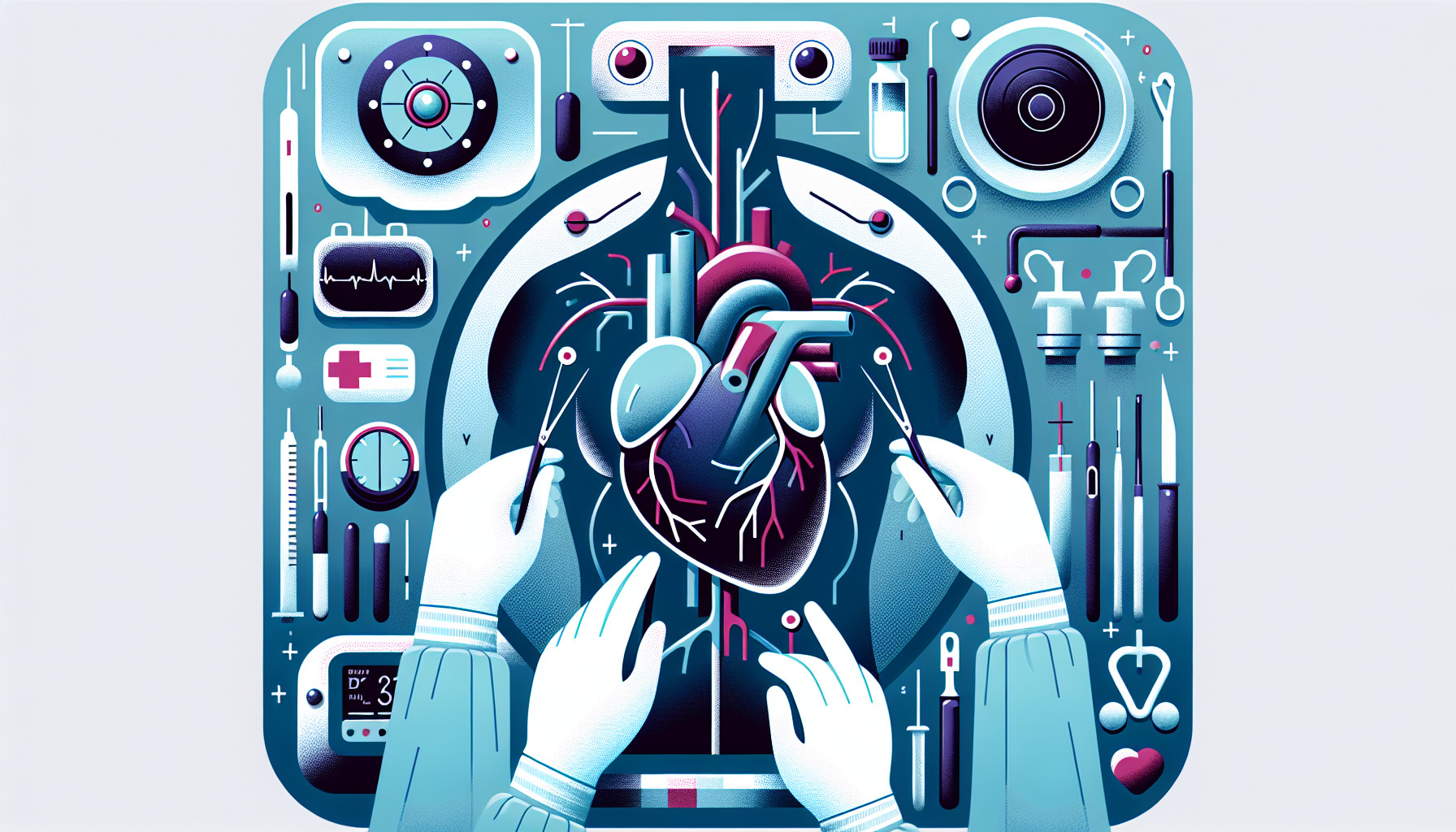Our Summary
This research paper is about a heart surgery called Coronary Artery Bypass Grafting (CABG), which is the most common heart surgery worldwide. The paper reviews how CABG is used today for treating heart diseases and talks about the latest advancements in care and outcomes around the time of surgery. The future of CABG could include using more than one artery during the surgery, which could help patients live longer and reduce the risk of complications. It could also involve less invasive methods and improve the speed of recovery after surgery.
FAQs
- What is Coronary artery bypass grafting (CABG)?
- What are the latest developments in perioperative care and outcomes for CABG?
- What are the future directions in the management of coronary artery disease using CABG?
Doctor’s Tip
One helpful tip a doctor might tell a patient about coronary artery bypass is to follow a healthy lifestyle post-surgery, including maintaining a balanced diet, exercising regularly, not smoking, and managing stress. These lifestyle changes can help improve the long-term success of the surgery and reduce the risk of future heart problems. Additionally, it’s important to attend follow-up appointments and take any prescribed medications as directed to ensure optimal recovery and overall heart health.
Suitable For
Patients who may be recommended coronary artery bypass grafting (CABG) typically include those with severe coronary artery disease who have not responded well to other treatments such as medication or lifestyle changes. This includes patients with:
- Severe blockages in multiple coronary arteries
- Left main coronary artery disease
- Coronary artery disease with reduced heart function (low ejection fraction)
- Unstable angina or heart attack
- Coronary artery disease with significant symptoms such as chest pain or shortness of breath
Ultimately, the decision to recommend CABG is based on a thorough evaluation of each patient’s individual condition, risk factors, and overall health. It is important for patients to discuss their treatment options with their healthcare provider to determine the best course of action for their specific situation.
Timeline
Before coronary artery bypass surgery:
- Patient is diagnosed with coronary artery disease, typically after experiencing symptoms such as chest pain or shortness of breath.
- Patient undergoes various diagnostic tests, such as an angiogram, to determine the extent of blockages in the coronary arteries.
- Cardiologist and cardiac surgeon determine that the patient is a candidate for coronary artery bypass surgery.
- Patient undergoes preoperative preparation, including blood tests, imaging studies, and consultations with the surgical team.
- Patient may need to make lifestyle changes, such as quitting smoking or improving diet, to optimize surgical outcomes.
After coronary artery bypass surgery:
- Patient is admitted to the intensive care unit immediately after surgery for monitoring and initial recovery.
- Patient is gradually weaned off of mechanical ventilation and other supportive measures.
- Patient begins physical therapy and rehabilitation to regain strength and mobility.
- Patient is discharged from the hospital once stable and able to care for themselves at home.
- Patient continues to follow up with their cardiologist and primary care physician for monitoring and management of their coronary artery disease.
- Patient may need to make further lifestyle changes, such as participating in cardiac rehabilitation or taking medications to prevent future blockages in the coronary arteries.
What to Ask Your Doctor
Some questions a patient should ask their doctor about coronary artery bypass include:
- Why do I need coronary artery bypass surgery?
- What are the potential risks and complications associated with the surgery?
- What is the success rate of the procedure?
- How long will it take to recover from the surgery?
- Will I need to make any lifestyle changes after the surgery?
- What medications will I need to take before and after the surgery?
- Will I need to participate in cardiac rehabilitation after the surgery?
- How often will I need to follow up with you after the surgery?
- Are there any alternative treatment options to coronary artery bypass surgery?
- What can I do to optimize the success of the surgery and improve my long-term outcomes?
Reference
Authors: Ramsingh R, Bakaeen FG. Journal: Cleve Clin J Med. 2025 Mar 3;92(3):181-191. doi: 10.3949/ccjm.92a.23071. PMID: 40032305
